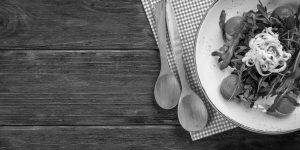
To view a PDF of this document please click HERE
Here are some recommendations that should help that you are eating for wellbeing and resilience:
- If you want to be on top of your game, consider carefully what you eat.
- It’s not about obsessing over health foods or living like an ascetic. Make changes that you can sustain.
- Before making changes to your diet, try to do a reality check of where you are currently and, over a representative time period, try to identify what your eating patterns. Keep a food diary. Even better, keep a food and mood diary.
- Hydration is key. About 60% of the human adult body is water and for optimal functioning, you need to stay hydrated. About 2-3 litres of water (water – not alcohol, caffeinated or soft drinks) each day should be enough for most people. Three straw-coloured pees per day is a good aim.
- In terms of food, the one overriding law of metabolism is the BMR, basal metabolic rate, which refers to the number of calories re-quired to keep your body functioning at rest. It is important to know your individual BMR as well as the amount of carbohydrates, proteins and fats you need.
- For most people, cutting out carbohydrates altogether is not sustainable, and it is important to know the difference between different types of carbohydrates, which can be done by looking at their glycaemic index (GI). Foods with a low GI will help maintain blood sugar levels, whilst foods with a high GI will cause high blood sugar spikes. When we talk of GL or glycaemic load, it’s the glycaemic index and the typical quality eaten, taken together. Click here for some examples.
- You don’t need more than 6 to 9 teaspoons of sugar a day and remember, a lot of it is hidden.
- Protein is the main building block used by the body, to build muscle tissue, repair organs and skin, and to create hormones, enzymes and neurotransmitters. The Western diet can be carbohydrate rich and protein poor! You need 0.8g of protein per kg of your body weight.
- The benefits of vitamin C are well known – 1g per day can cut down the length of a cold significantly.
- Make sure you are getting enough vitamin A – from plant and animal sources; plants – carotenoids: sweet potatoes, carrots, spinach, red peppers, apricots; animals – retinol: liver, cod liver, salmon, tuna, trout, cheese).
- Vitamin D is synthesised from sunlight and is key to immunity. You can also get it in fortified foods, salmon, herring and sardines, tuna, eggs yolks, mushrooms – but only really works if also adding vitamin K2 (kale, chard, spinach, broccoli, green beans, prunes, avocado).
- Zinc is vital for health and is found in red meat, shellfish, legumes (e.g. chickpeas and lentils), seeds, nuts, cheese and eggs.
- Don’t forget vitamin B12 – sardines, tuna and oily fish – supplements might be needed for vegetarians/vegans.
- Cut down on the booze: No more than 14 units per week and several alcohol-free days are important.
- Reliable research has shown that the best diet for health and resilience is the Mediterranean diet, composed of 1) abundant use of olive oil; 2) high consumption of plant foods (fruits, vegetables, legumes, cereals, nuts, and seeds); 3) frequent but moderate intake of wine (especially red wine) with meals; 4) moderate consumption of fish, seafood, fermented dairy products (yogurt and cheese), poultry, and eggs; and 5) low consumption of red and processed meat and sweets. Foods such as broccoli, spinach, oranges, blueberries etc. have specific health benefits, too.
- Your gut and brain are in a constant two-way conversation, so look after your gut health by looking after the roughly 50 trillion friendly bacteria that live in your large intestines and make digestion possible. Treat your digestive system with respect, eat pre-biotic foods, follow a diet that encourages biodiversity in your gut and give it time to heal and repair.
- Fats are essential for our health, but you need the right fats. Omega 3 fatty acids are particularly good for your physical and mental health. Good sources are fish and other seafoods and nuts and seeds (flax, chia seeds and walnuts).
- Sixth Sense runs a workshop on this topic that you might enjoy. It’s called Nutrition Works. More details here.
Want to know more? Search the range of resources here on sane.works. There are book recommendations, links to websites, TED talks and worksheets and we are always adding to the list! Click here to begin.
Have a look at Chapter 5 of Mind Body Balance in Business. To order a copy, click here.

